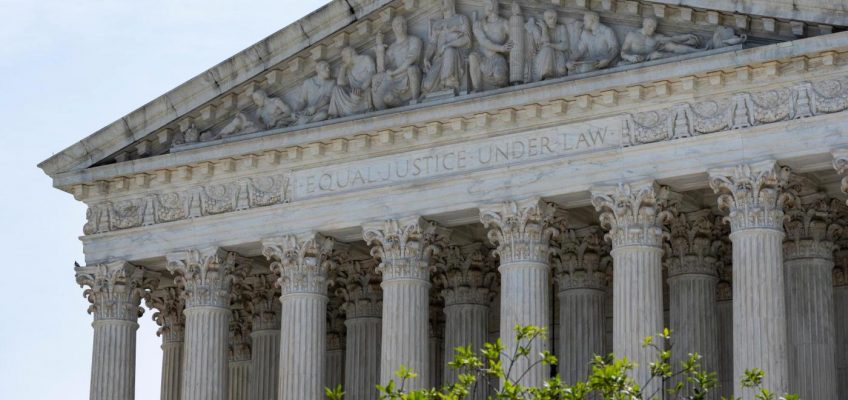Articles
Necessary Sites | important hyperlink
Finest alive casino games for Bitcoin
Bitdice Details
The first Individual Retirement Account (IRA): All you have to Consider
One of several standout options that come with Playbet.io is its advertisements both for the fresh and you may coming back people, that’s just what you’ll predict on the best crypto gambling enterprise. Of big welcome bonuses so you can reload advertisements, freebies, and you may cashback rewards, there will be something for everybody, especially typical people. You’ll find far more adventure if you are for the Drops & Gains otherwise position events. And you will, of course, sporting events bettors will get a variety of promotions customized just for him or her.
Necessary Sites | important hyperlink
Scrolling below, you may also find out how certainly discussed everything is. One secure Bitcoin bag which allows you to send and receive financing are working. Make sure that your purse is credible and you may safe prior to using it to own transactions. Specific gambling enterprises convert their Bitcoin deposit to the a reliable currency on deposit, protecting your balance from volatility.
Finest alive casino games for Bitcoin
You can allege numerous racy marketing and important hyperlink advertising also provides that can improve your money and allow you to enjoy a lot more of these video game. As well as a top invited promo, WSM also offers ongoing promotions and a great VIP pub. High-rollers will also discover that of numerous games offer higher betting limitations that allow for more extreme profits.
Yet ,, it’s vital to acknowledge one Bitcoin comes to a top level of look and you can knowledge to make use of crypto securely. If it seems as well tricky to you, given alternative detachment actions for example lender transfers otherwise handmade cards you are going to be better. You can also get more info away from credible Bitcoin transfers and you will bag organization regarding the better means of making use of their systems so you can pick and you will control your digital possessions. An excellent investment to own getting informed in regards to the latest developments and you may development on the Bitcoin environment is actually authoritative news websites such Money Desk. Make sure you match the detachment conditions manufactured in all online casino’s T&Cs prior to asking for a withdrawal.
Bitdice Details
It is wise to make sure to meet all of the courtroom conditions prior to to experience within the a specific gambling enterprise. It does take them just a bit of time to answer but absolutely nothing really worth whining on the. That it online casino puts any well-founded casinos so you can guilt, at least, in terms of website design. BitDice Gambling establishment is actually authorized by the Government out of Curacao and that, you may already know, implies that it’s a secure paradise for real-money online game. Given the most recent payment now offers, DuckDice tends to make an effort to ensure that you can take advantage of going the newest dice long lasting crypto coin you own.
More casinos on the internet are recognizing Bitcoin since the a financial means as the it offers large defense, more confidentiality, and you will quick withdrawals. When it is alert to these drawbacks, you could potentially make a plan in order to mitigate dangers and revel in a safer and much more fun betting sense in the crypto gambling enterprises. By offering a varied listing of gambling possibilities, Bitcoin casinos ensure that players will enjoy an unparalleled gaming excitement. People can watch come back-to-user prices for online game, which are normally around 99%, leading to the fresh rely on inside games fairness.
Confidentiality is a cornerstone away from cryptocurrency, and you will stablecoins are no exemption. Purchases which have stablecoins retain the privacy a large number of people search, permitting a gaming experience one’s both fun and you may discerning. In the wonderful world of Bitcoin gambling, detachment price are synonymous with satisfaction. Casinos one techniques distributions efficiently value your importance of quick availability for the earnings.
If you are looking to expand your alive specialist choices, we advice learning out 7 Sultans Gambling establishment opinion. A great crypto gambling enterprise no-deposit added bonus try a promo offered to people who check in a reputation having a gambling establishment but refuge’t yet , transferred one financing. These promos allow you to talk about the brand new gambling enterprise and its particular also provides however, remember that Bitcoin casinos no-deposit promos is actually unusual. Crazy.io is just one of the leading Crypto gambling enterprises with regards to so you can exciting promotions and will be offering.
Of numerous BCH gambling enterprises provide provably reasonable games, enabling professionals to ensure the newest randomness and you may equity of each benefit.
In addition to, expertise online game such as Keno, Bingo, and you will lotto, along with bitcoin live specialist game.
Whether or not you’re also on the black-jack, roulette, or poker, Flush has some thing for all.
The newest Provably Reasonable mechanisms are made up from a few haphazard chain, one to provided with the fresh servers and one provided by the ball player.
If you aren’t sure about the laws and regulations of any from such games and would like to test it, it is best to first is actually their demo enjoy, where you can wager which have demonstration credits as opposed to real money.
Simultaneously, Restaurant Gambling establishment’s customer care is highly receptive, ensuring that one things or concerns are promptly addressed as a result of numerous streams.
Yet not, if you are to try out free gambling games and no put incentives, you could potentially claim people winnings you can get once you have finished the fresh wagering criteria in the extra small print. Another means to fix gamble free game at the casino is to receive a no deposit free spins extra. No-deposit spins are rare at the crypto gambling enterprises, and lots of come with wagering standards.
Thus you could potentially withdraw the newest payouts out of your no deposit incentive whenever you meet the playthrough standards.
Overseas gaming licenses ensure it is gambling enterprises to operate without the need to adhere every single regional rules global.
Following, go into the amount of Bitcoin your’d need to put and you may paste the new deposit address you duplicated in the local casino’s deposit webpage (otherwise examine the fresh QR code, in the event the provided).
When you are established customer advertisements is a little minimal, Cryptorino’s cashback system brings a consistent added bonus to own players, providing a regular 20% cashback on the web betting loss.
Along with several, if not thousands, of bitcoin harbors, you’ll also see table online game, real time specialist online game, expertise video game, and a lot more.
The first Individual Retirement Account (IRA): All you have to Consider
The newest casino’s video game alternatives are huge, featuring over 7000 titles, as well as ports, dining table games, alive online casino games, and more, away from notable company such as Development Betting, Practical Gamble, and you will Netent. Per week tournaments, gambling enterprise challenges, as well as the unique Forest and VIP Rims include levels away from excitement and you may race, having big award pools and you may benefits up for grabs. In summary, Celsius Local casino brings together cutting-edge technical, top-tier playing team, and you may unparalleled customer service to deliver an exceptional gaming sense. Whether you’re an experienced athlete otherwise new to web based casinos, Celsius Gambling establishment pledges excitement, perks, and unlimited entertainment. And their inflatable gambling catalog, FortuneJack entices professionals which have appealing incentives and advertisements. Of nice acceptance incentives in order to ongoing support perks, people are incentivized to explore the fresh big variety of playing alternatives available on the working platform.
WinDice.io assures a straightforward approaches to the newest producing the newest bullet results on the examining hashes before and after randomization. The website emphasizes performing a sense of somebody certainly one of users thanks a lot to devoted forums or other cam provides like social media communities. Big workers such as Ignition Casino and the Bovada operate in The brand new Jersey, providing many different betting choices. Observe that speak help to have local casino applications may not be offered 24/7, thus take a look at its access to be sure you can purchase assistance whenever necessary.



